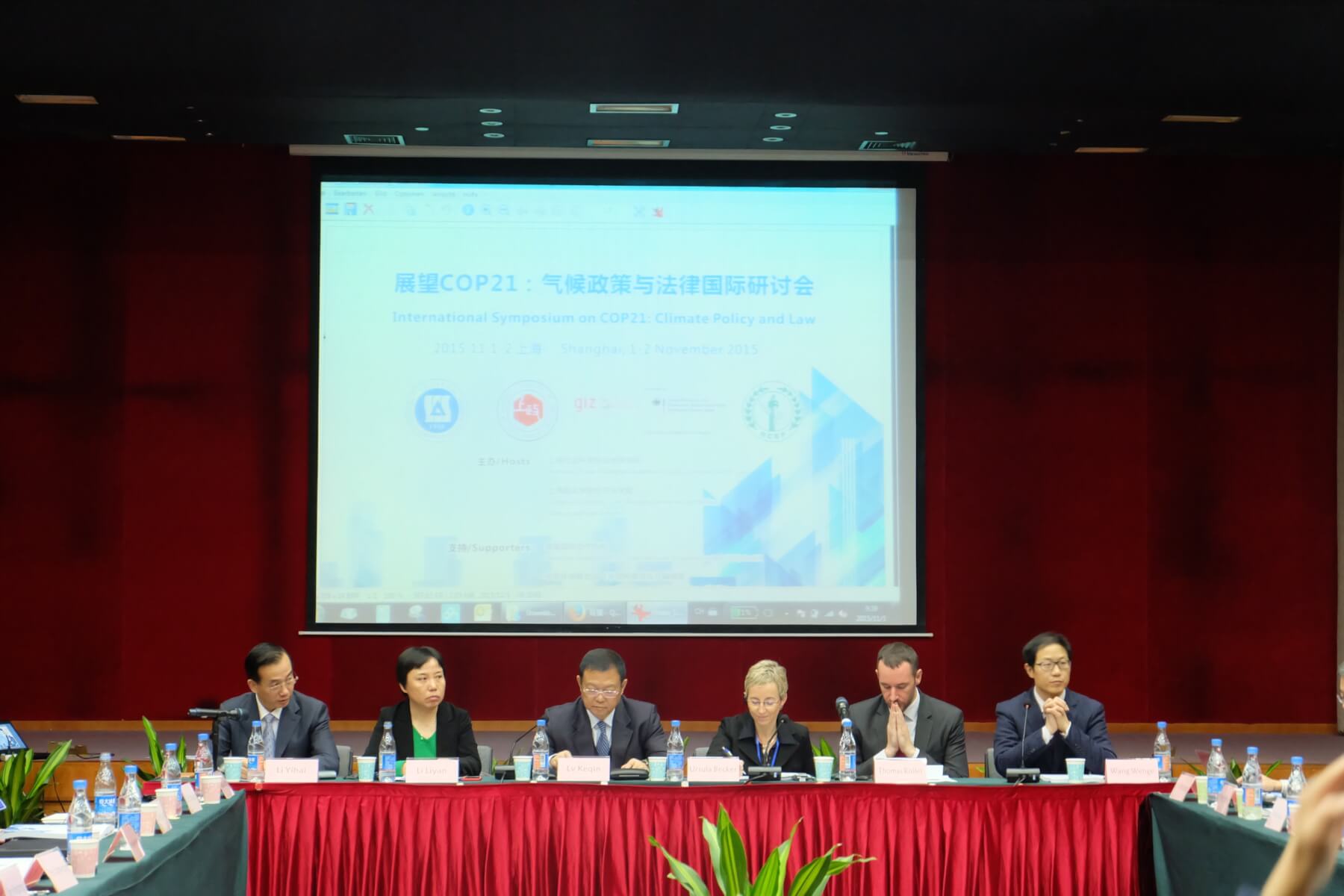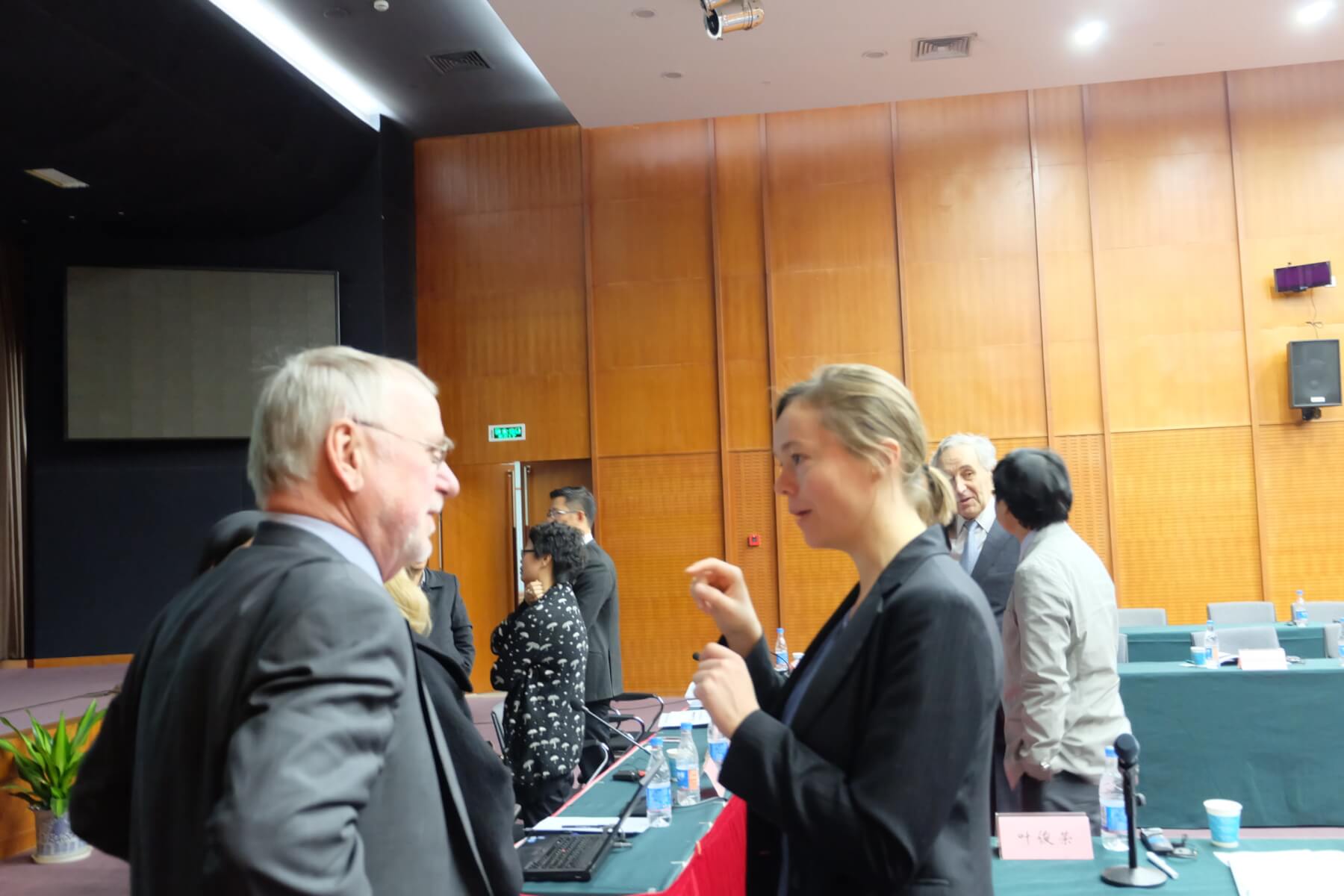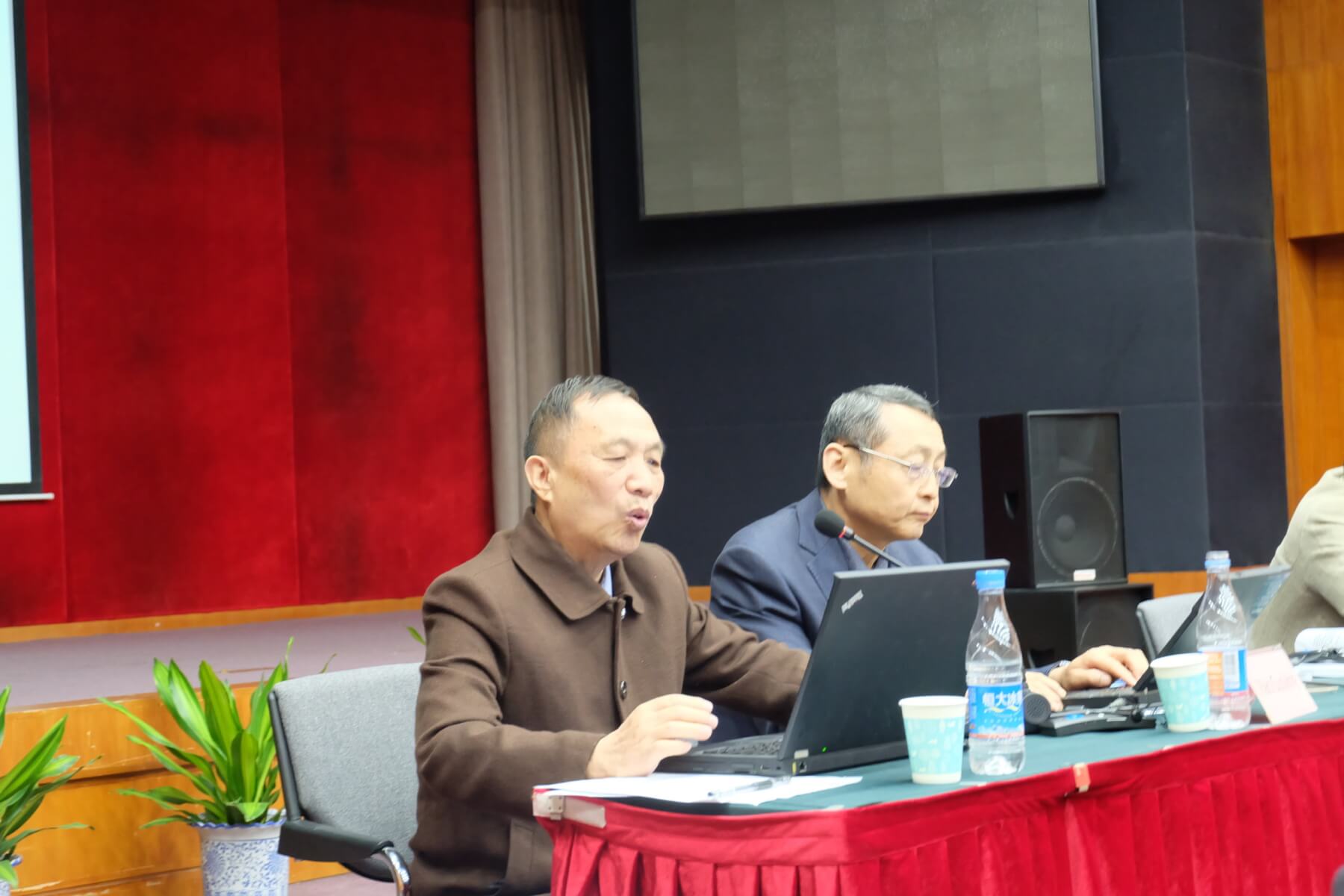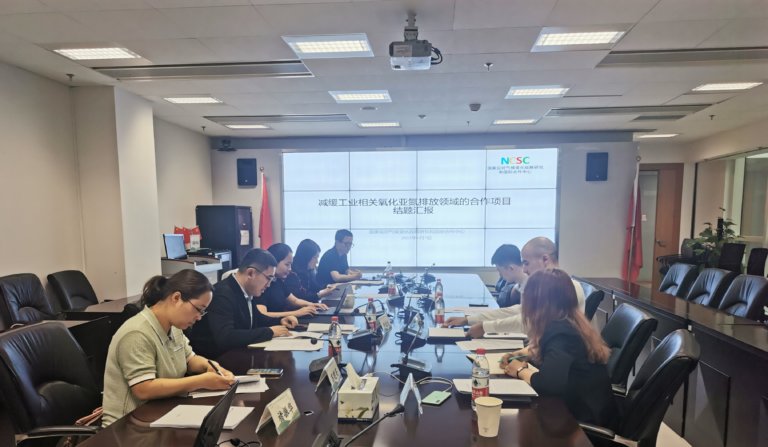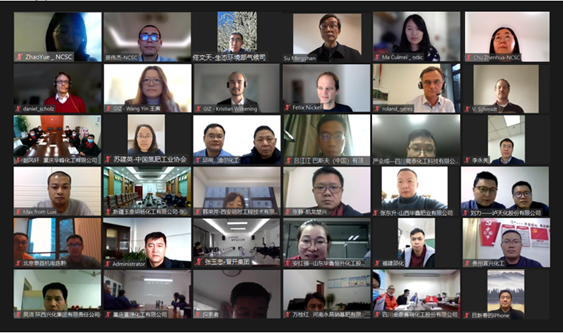01-02 November 2015 – The Sino-German project Capacity Building for the Establishment of Emissions Trading Schemes (ETS) in China co-organized the International Symposium on COP21: Climate Policy and Law. In anticipation of the 21st Conference of the Parties (COP21) taking place from November 30 to December 11, 2015 in Paris, the symposium was held in Shanghai from November 1-2, 2015. Main topics included the general trend of climate negotiations and the future of international carbon markets. A special focus was placed on the role of the Chinese carbon market, how it could be linked to a global carbon market and how China can prepare the launch of its national trading scheme.
The event was jointly organized by Shanghai Academy of Social Sciences (SASS), All-China Environment Federation (ACEF), Shanghai University of Political Science and Law and Gesellschaft für Internationale Zusammenarbeit (GIZ). The main objective of the Symposium was to facilitate an academic exchange between international and Chinese scholars as well as political representatives on the current status of international climate change negotiations and the newest developments of the international and Chinese carbon market. International speakers from France, Canada, the USA, Brazil and Germany as well as Chinese speakers, including representatives from the National Development and Reform Commission (NDRC) and the Shanghai Development and Reform Commission (Shanghai DRC) presented their views. Together with the around 40 participants they engaged in lively and in-depth discussions.
Dr. Hans-Joachim Ziesing Senior Policy Advisor at Ecologic Institute in Berlin and Susanne Langsdorf Fellow at Ecologic Institute in Berlin were invited by GIZ to contribute as speakers. Dr. Ziesing gave a general overview of current international carbon pricing and the specifics and challenges of the EU ETS. Ms. Langsdorf presented on the importance of cities in the process of combating climate change and emphasised that considering the emissions reduction potential of cities, they should play a bigger role in international negotiations.
